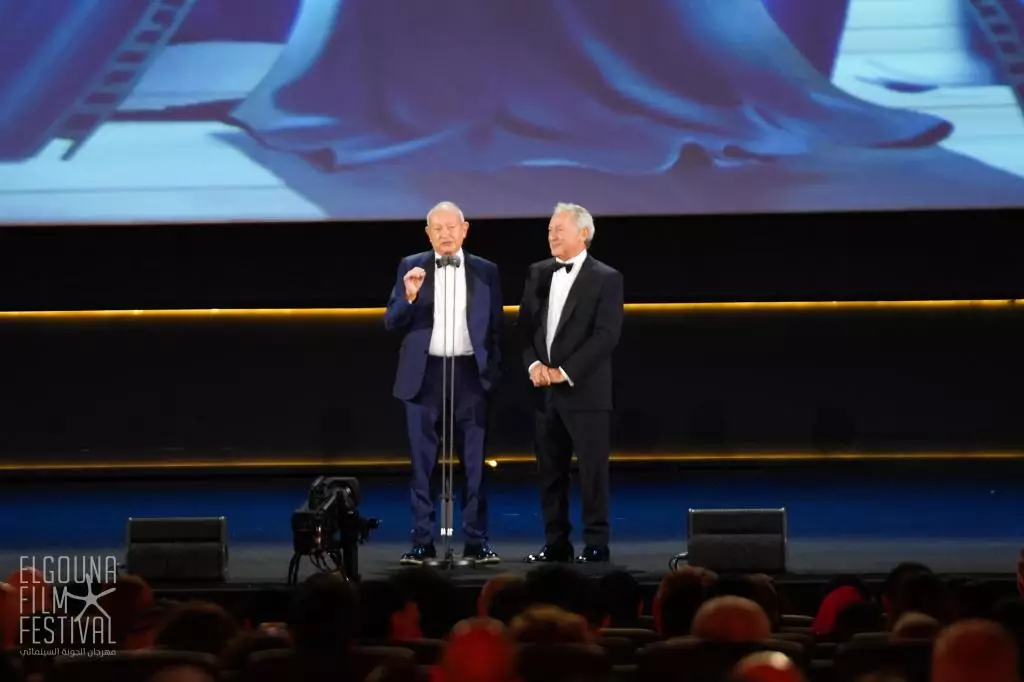The El Gouna Film Festival, now in its seventh edition, commenced on October 24, 2023, in a backdrop heavy with geopolitical tension and urgent calls for peace. Despite its reputation as a glamorous event, this year’s festival took a more somber tone, emphasizing the spiritual and humanitarian struggles that dominate the consciousness of the Middle East. The event was marred by a notable act of censorship when Abdelwahab Shawky’s short film, *The Last Miracle*, which carries poignant themes related to Palestine, was abruptly pulled from the lineup. Instead, the festival opened with *The Man Who Could Not Remain Silent*, a short by Croatian director Nebojša Slijepčević that had garnered acclaim at the Cannes Film Festival. The switch raised eyebrows and highlighted the complex intersection of art and politics in a region fraught with conflict.
The cancellation of *The Last Miracle* from the festival program has brought to the forefront issues of censorship in Egypt’s artistic landscape. While the festival’s organizers have not publicly detailed the reasons for the film’s withdrawal, reports suggest that the Egyptian General Authority for Censorship rescinded the film’s screening license shortly before the festival began. This incident has been characterized by prominent film critics as indicative of a broader pattern of suppression, particularly regarding works addressing sensitive topics such as the Israeli-Palestinian conflict.
Film critic Tarek El Shennawi insinuated that a controversial scene involving a dervish might have drawn the ire of the censors, reflecting how easily art can stir controversies in political climates where expressions are monitored and restricted. Shawky’s film, based on a narrative by Nobel Prize-winning writer Naguib Mahfouz, explores existential themes in the context of loss and faith—concepts that resonate deeply within the historical narratives of the Arab world since the Six-Day War of 1967.
*The Last Miracle* delves into a man’s surreal journey after receiving a call from a deceased teacher, leading to profound introspection. Shawky notes the film’s roots in a story composed against the backdrop of the displacing events of 1967, which resulted in the exodus of hundreds of thousands of Palestinians. Shawky’s exploration of spiritual loss and human frailty underscores how these sentiments continue to influence contemporary society. He believes that the repercussions of past conflicts still manifest in today’s cultural psyche, suggesting that the inability to overcome historical trauma has led to a state of despair and irrationality among citizens.
This relevance could be one of the reasons *The Last Miracle* was deemed inappropriate for public viewing. The tension between preserving artistic freedom and adhering to governmental oversight remains a critical challenge for artists in Egypt. The festival’s abrupt decision to replace the film with another entry reflects the precarious balance of navigating this landscape.
Unlike past events characterized by ostentatious fashion and lively festivities, the current El Gouna Film Festival opted for a more reserved ambiance. Though attendees donned smart attire, the absence of extravagant displays indicated a recognition of the gravity of the ongoing struggles affecting both Palestine and Lebanon.
Naguib Sawiris, the festival’s co-founder, opened the event with an impassioned plea for peace, highlighting the plight of innocent lives in various conflict zones, including Gaza, Ukraine, and Sudan. His comments evoked a sense of global solidarity and the critical role film and storytelling play in shining a light on human suffering. Sawiris’s remarks served as a reminder that art is not merely for entertainment but also a medium capable of prompting dialogue and fostering empathy.
Within a framework that includes 77 films from 32 countries, the festival showcases international contributions, such as Pedro Almodóvar’s renowned work making its MENA premiere. The diversity of films presented offers critical commentary on societal issues and the multifaceted nature of the human experience. As the festival unfolds amidst the turmoil of ongoing hostilities, it serves as a pivotal platform for filmmakers and artists, who, despite the constraints imposed on them, utilize their talents to resonate with an audience seeking solace, inspiration, and reflection.
As the El Gouna Film Festival progresses, it becomes evident that the challenges it faces are deeply intertwined with the broader narratives of conflict, censorship, and the human condition. While attendees may celebrate artistic achievements, they simultaneously grapple with the reality that these expressions often come at a cost. As the world continues to witness upheaval, festivals like El Gouna remind us of the vital role art plays in advocating for peace and understanding, illuminating realities that demand attention, compassion, and ultimately, change.


Leave a Reply